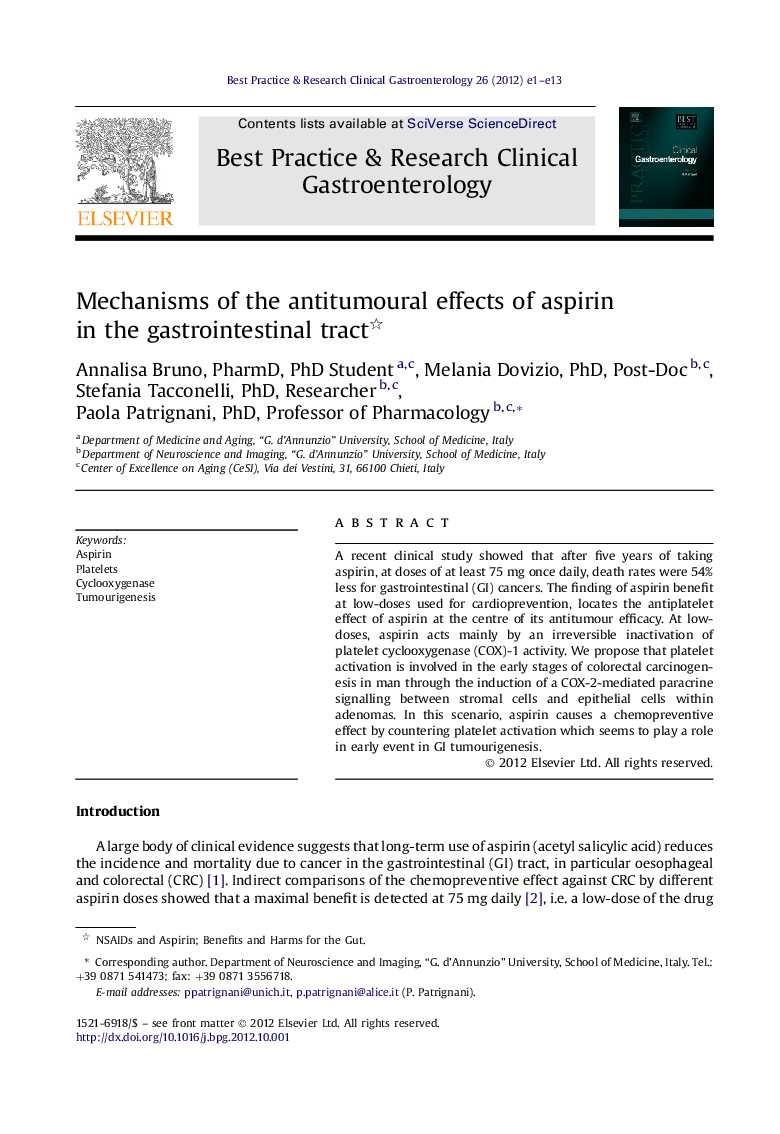| Article ID | Journal | Published Year | Pages | File Type |
|---|---|---|---|---|
| 3254204 | Best Practice & Research Clinical Gastroenterology | 2012 | 13 Pages |
A recent clinical study showed that after five years of taking aspirin, at doses of at least 75 mg once daily, death rates were 54% less for gastrointestinal (GI) cancers. The finding of aspirin benefit at low-doses used for cardioprevention, locates the antiplatelet effect of aspirin at the centre of its antitumour efficacy. At low-doses, aspirin acts mainly by an irreversible inactivation of platelet cyclooxygenase (COX)-1 activity. We propose that platelet activation is involved in the early stages of colorectal carcinogenesis in man through the induction of a COX-2-mediated paracrine signalling between stromal cells and epithelial cells within adenomas. In this scenario, aspirin causes a chemopreventive effect by countering platelet activation which seems to play a role in early event in GI tumourigenesis.
